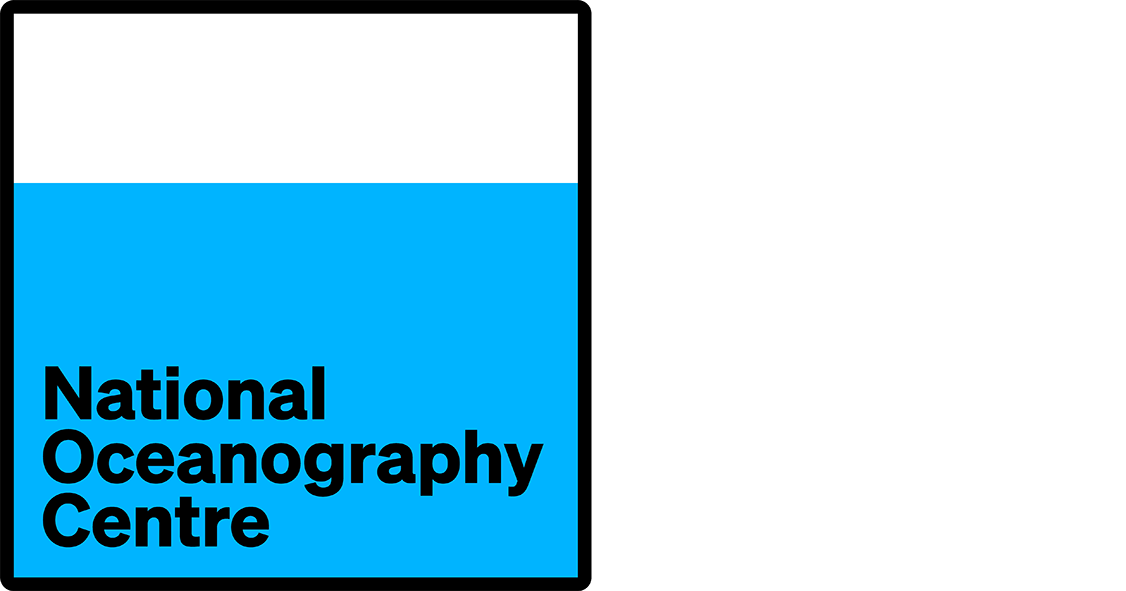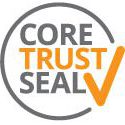Metadata Report for BODC Series Reference Number 380382
Metadata Summary
Problem Reports
Data Access Policy
Narrative Documents
Project Information
Data Activity or Cruise Information
Fixed Station Information
BODC Quality Flags
SeaDataNet Quality Flags
Metadata Summary
Data Description |
|||||||||||||||||||||||||
|
|||||||||||||||||||||||||
Data Identifiers |
|||||||||||||||||||||||||
|
|||||||||||||||||||||||||
Time Co-ordinates(UT) |
|||||||||||||||||||||||||
|
|||||||||||||||||||||||||
Spatial Co-ordinates | |||||||||||||||||||||||||
|
|||||||||||||||||||||||||
Parameters |
|||||||||||||||||||||||||
|
|||||||||||||||||||||||||
|
|||||||||||||||||||||||||
Problem Reports
No Problem Report Found in the Database
Data Access Policy
Public domain data
These data have no specific confidentiality restrictions for users. However, users must acknowledge data sources as it is not ethical to publish data without proper attribution. Any publication or other output resulting from usage of the data should include an acknowledgment.
The recommended acknowledgment is
"This study uses data from the data source/organisation/programme, provided by the British Oceanographic Data Centre and funded by the funding body."
Narrative Documents
Neil Brown MK3 CTD
The Neil Brown MK3 conductivity-temperature-depth (CTD) profiler consists of an integral unit containing pressure, temperature and conductivity sensors with an optional dissolved oxygen sensor in a pressure-hardened casing. The most widely used variant in the 1980s and 1990s was the MK3B. An upgrade to this, the MK3C, was developed to meet the requirements of the WOCE project.
The MK3C includes a low hysteresis, titanium strain gauge pressure transducer. The transducer temperature is measured separately, allowing correction for the effects of temperature on pressure measurements. The MK3C conductivity cell features a free flow, internal field design that eliminates ducted pumping and is not affected by external metallic objects such as guard cages and external sensors.
Additional optional sensors include pH and a pressure-temperature fluorometer. The instrument is no longer in production, but is supported (repair and calibration) by General Oceanics.
Specifications
These specification apply to the MK3C version.
| Pressure | Temperature | Conductivity | |
| Range | 6500 m 3200 m (optional) | -3 to 32°C | 1 to 6.5 S cm-1 |
| Accuracy | 0.0015% FS 0.03% FS < 1 msec | 0.0005°C 0.003°C < 30 msec | 0.0001 S cm-1 0.0003 S cm-1 < 30 msec |
Further details can be found in the specification sheet.
SeaTech Transmissometer
Introduction
The transmissometer is designed to accurately measure the the amount of light transmitted by a modulated Light Emitting Diode (LED) through a fixed-length in-situ water column to a synchronous detector.
Specifications
- Water path length: 5 cm (for use in turbid waters) to 1 m (for use in clear ocean waters).
- Beam diameter: 15 mm
- Transmitted beam collimation: <3 milliradians
- Receiver acceptance angle (in water): <18 milliradians
- Light source wavelength: usually (but not exclusively) 660 nm (red light)
Notes
The instrument can be interfaced to Aanderaa RCM7 current meters. This is achieved by fitting the transmissometer in a slot cut into a customized RCM4-type vane.
A red LED (660 nm) is used for general applications looking at water column sediment load. However, green or blue LEDs can be fitted for specilised optics applications. The light source used is identified by the BODC parameter code.
Further details can be found in the manufacturer's Manual.
RRS Charles Darwin Cruise 42 CTD Data Documentation
Introduction
Documentation for CTD data collected on RRS Charles Darwin Cruise 42 (September - October 1989) by the Institute of Oceanographic Sciences (Deacon Laboratory), Godalming, Surrey, UK, under the direction of P.M. Saunders.
Instrumentation
The instrument used was a Neil Brown Systems CTD which measured pressure, temperature and conductivity and was fitted with a Beckman dissolved oxygen electrode. The CTD was used alongside a General Oceanics Rosette Multisampler with 12 water bottles, a 10kHz pinger, a bottom echo-sounder and a SeaTech 1m path transmissometer. Lowering and retrieval rates of 0.5 to 1.5m/s were employed and the sensors were flushed with distilled water on recovery. Bottle samples and reversing thermometer measurements were made on ascent and sea water samples were analysed using a Guildline Autolab Salinometer.
Throughout the cruise the CTD performed flawlessly except on the second station where noisy data were encountered. The CTD sea cable was then reterminated and there were no further problems.
A new conductivity cell was fitted en route to the first station. This required unsoldering the temperature sensor and enlarging the seating of the conductivity cell. The rewiring caused a shift in the calibration of the temperature sensor. A working calibration for both temperature and salinity was derived from digital reversing thermometers and salinity samples, the latter good to +/-0.002. A complete temperature recalibration was performed on return to the laboratory.
Calibration
Temperature
On the cruise 6 SIS digital reversing thermometers (RTM 4002) and one reversing pressure meter (RPM 6000) were available and were installed on the multisampler frames. After the first two casts it was apparent that even after the manufacturer's calibration corrections had been applied there were differences of the order of 0.01 °C between the values obtained by instruments on the same frame. The age of the digital reversing thermometers varied from about one year to 6 months and the differences encountered on the cruise suggested calibration drift rates of the order of 0.01 °C/year. The standard deviation of the observed differences for pairs of digital reversing thermometers and for CTD/digital reversing thermometer measurements is higher than previously observed but the unsteady conditions of measurement were largely responsible for this.
Pressure
The pressure sensor (RPM 6000) agreed well with the CTD pressure for the shallow casts (<850 dbars) but exhibited large differences for the moderately deep stations of the Charlie Gibbs Fracture Zone.
Salinity
Sea water samples drawn from 26 CTD casts were analysed in the constant temperature laboratory on Charles Darwin using a Guildline Autosal 8400 (Serial Number 42508) and standardised using Standard Seawater P111. Salinity determination from Guildline ration was performed on the cruise using Ocean Scientific International's software package 'Salinity'. This was highly efficient.
Oxygen
Dissolved oxygen samples were taken on 16 of the 26 CTD casts. Two samples were drawn from each Niskin bottle, giving a total of 250 samples for analysis by Winkler titration. The difference between the duplicates was generally better than 0.01 ml/l with standard deviation of 0.014 (for 338 samples, the remainder had much larger differences suggesting errors in the sampling or analysing procedure). This indicated that the accuracy of the measurements was better than 0.2 per cent compared to a possible accuracy of 0.1 per cent for the Winkler titration procedure.
Transmittance
Potential transmittance, which takes account of the increasing mass of clear water in the 1 metre path of the instrument with increasing pressure, was calculated.
Data Processing
Original values were averaged over an interval of one second and calibration coefficients and correction factors applied.
Differences between successive values of each parameter were examined; the mean difference and its standard deviation calculated and values greater than several standard deviations from the mean difference were checked. Only a limited amount of editing of the data was required. Data were sorted on pressure, averaged at 2 dbars and missing values were interpolated. Derived quantities were computed from algorithms published by Fofonoff and Millard (1983).
References
Crease, J. et. al. 1988.
The acquisition, calibration and analysis of CTD data. UNESCO Technical Papers in Marine Science. No. 54, 96pp.
Fofonoff, N.P. and Millard, R.C. 1983.
Algorithms for computation of fundamental properties of seawater. UNESCO Technical Papers in Marine Science. No. 44, 53pp.
Saunders, P.M., et. al. 1989.
RRS Charles Darwin Cruise 42, 22 Sep - 16 Oct 1989: Overflow studies in the Charlie-Gibbs Fracture Zone and near the Faeroe Islands. Institute of Oceanographic Sciences Deacon Laboratory, Cruise Report No. 209, 34pp.
Project Information
No Project Information held for the Series
Data Activity or Cruise Information
Cruise
| Cruise Name | CD42 |
| Departure Date | 1989-09-22 |
| Arrival Date | 1989-10-16 |
| Principal Scientist(s) | Peter M Saunders (Institute of Oceanographic Sciences Deacon Laboratory) |
| Ship | RRS Charles Darwin |
Complete Cruise Metadata Report is available here
Fixed Station Information
No Fixed Station Information held for the Series
BODC Quality Control Flags
The following single character qualifying flags may be associated with one or more individual parameters with a data cycle:
| Flag | Description |
|---|---|
| Blank | Unqualified |
| < | Below detection limit |
| > | In excess of quoted value |
| A | Taxonomic flag for affinis (aff.) |
| B | Beginning of CTD Down/Up Cast |
| C | Taxonomic flag for confer (cf.) |
| D | Thermometric depth |
| E | End of CTD Down/Up Cast |
| G | Non-taxonomic biological characteristic uncertainty |
| H | Extrapolated value |
| I | Taxonomic flag for single species (sp.) |
| K | Improbable value - unknown quality control source |
| L | Improbable value - originator's quality control |
| M | Improbable value - BODC quality control |
| N | Null value |
| O | Improbable value - user quality control |
| P | Trace/calm |
| Q | Indeterminate |
| R | Replacement value |
| S | Estimated value |
| T | Interpolated value |
| U | Uncalibrated |
| W | Control value |
| X | Excessive difference |
SeaDataNet Quality Control Flags
The following single character qualifying flags may be associated with one or more individual parameters with a data cycle:
| Flag | Description |
|---|---|
| 0 | no quality control |
| 1 | good value |
| 2 | probably good value |
| 3 | probably bad value |
| 4 | bad value |
| 5 | changed value |
| 6 | value below detection |
| 7 | value in excess |
| 8 | interpolated value |
| 9 | missing value |
| A | value phenomenon uncertain |
| B | nominal value |
| Q | value below limit of quantification |

